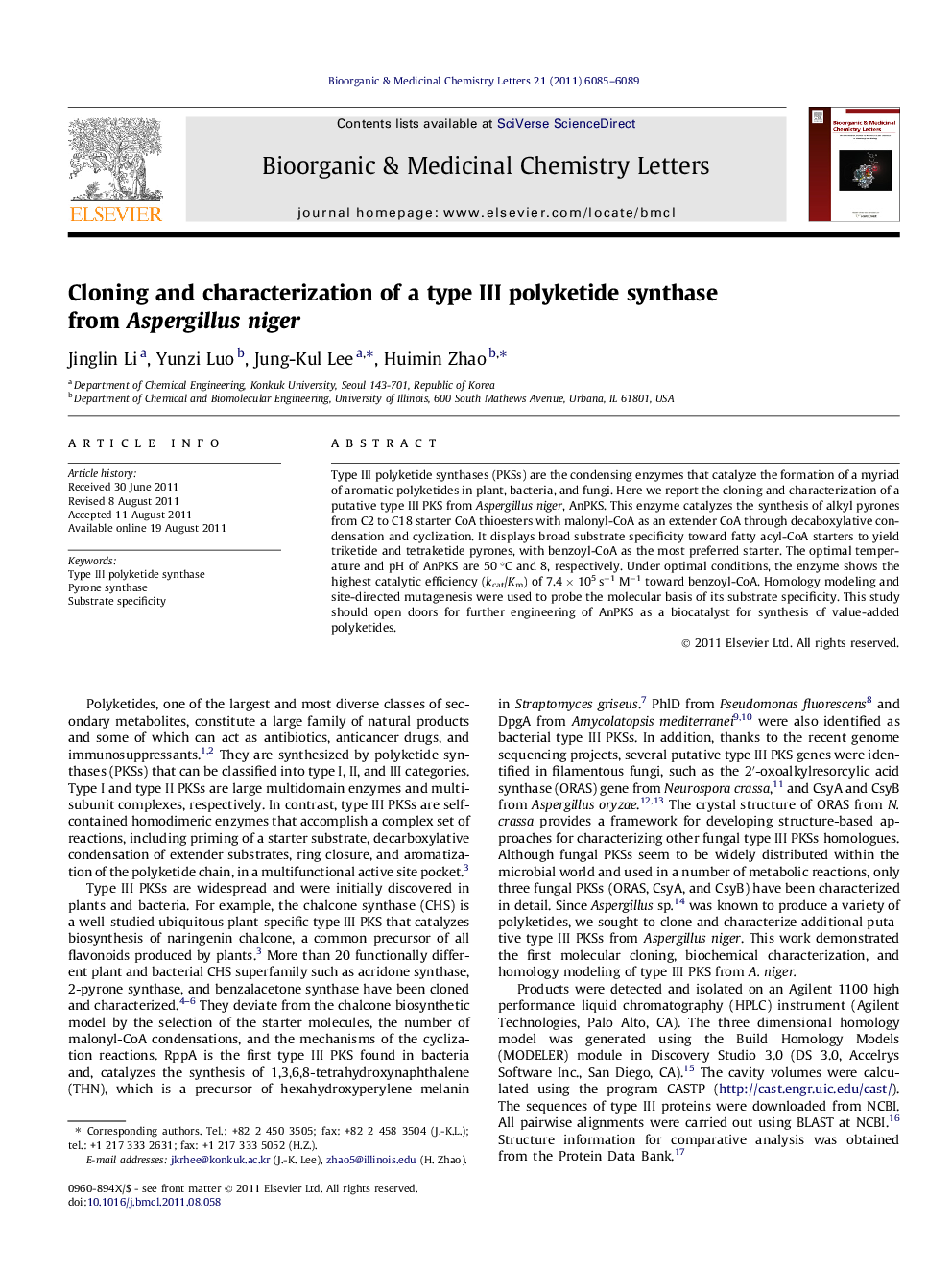| Article ID | Journal | Published Year | Pages | File Type |
|---|---|---|---|---|
| 1370652 | Bioorganic & Medicinal Chemistry Letters | 2011 | 5 Pages |
Type III polyketide synthases (PKSs) are the condensing enzymes that catalyze the formation of a myriad of aromatic polyketides in plant, bacteria, and fungi. Here we report the cloning and characterization of a putative type III PKS from Aspergillusniger, AnPKS. This enzyme catalyzes the synthesis of alkyl pyrones from C2 to C18 starter CoA thioesters with malonyl-CoA as an extender CoA through decaboxylative condensation and cyclization. It displays broad substrate specificity toward fatty acyl-CoA starters to yield triketide and tetraketide pyrones, with benzoyl-CoA as the most preferred starter. The optimal temperature and pH of AnPKS are 50 °C and 8, respectively. Under optimal conditions, the enzyme shows the highest catalytic efficiency (kcat/Km) of 7.4 × 105 s−1 M−1 toward benzoyl-CoA. Homology modeling and site-directed mutagenesis were used to probe the molecular basis of its substrate specificity. This study should open doors for further engineering of AnPKS as a biocatalyst for synthesis of value-added polyketides.
Graphical abstractFigure optionsDownload full-size imageDownload as PowerPoint slide
